There are so many different compressor plugins out there. How do you know which one to pick?
Which compressor do you use, and when?
Keep reading, and you'll learn everything you need to know about the different types of compressors, and when you should use one type, and not another type.
What is a Compressor?
A compressor is an audio processor that reduces the dynamic range of audio signals. The Dynamic range is the difference between the loudest and the quietest parts of a sound.
Therefore, you can think of a compressor as an automatic volume knob that turns down loud parts of a sound, and turns up quiet parts.
This is essential for achieving a professional mix, as you'll notice that both the loud and quiet parts are generally equally audible in the mix.
In the olden days, compressors were physical boxes with knobs on them that audio engineers would run an audio signal through.
Today, there are tons and tons of software "plug-ins" that you can use instead which emulate the sound of these analog compressors.
Which Compressor Plug-in Do you Use, and When?
Which compressor you use when, and on which instruments, depends on what you're wanting to do with the compressor.
As you'll read on, there are a few common attributes that all compressors impact (or don't impact).
These attributes include:
So, which compressors color your sound and/or involve aggressive compression vs. which compressors are more transparent, or better at "gluing" together your mix?
Well, the rest of this article will cover all the various plugin types and what they're good for, and not so good for.
Optical Compressor Plugins
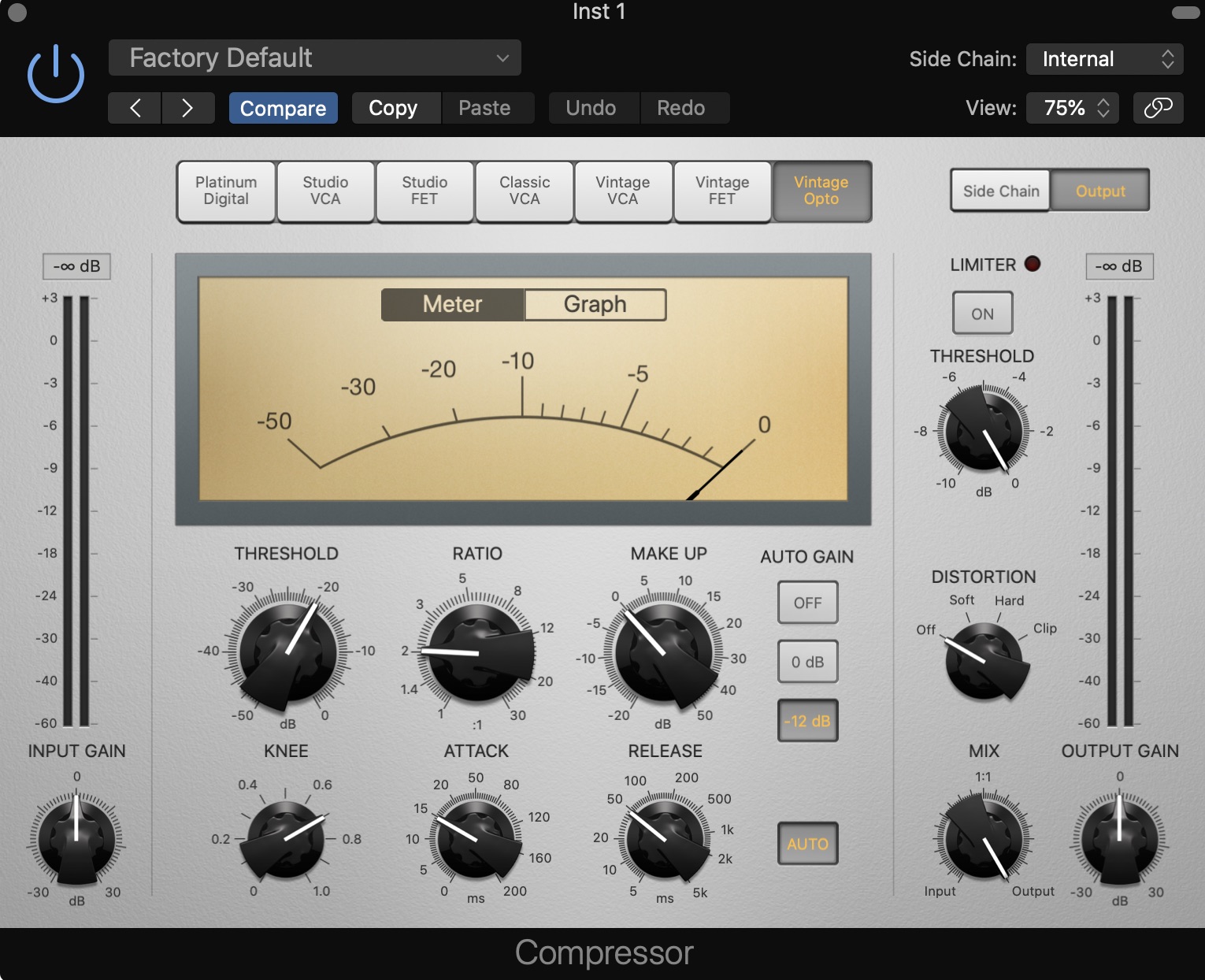
Smooth & Transparent
Optical compressors turn the audio signal into light, which it then uses to control the compression.
Because of the physical properties of the photocell, optical compression has a very musical-sounding action.
As a result, the response of optical compression is very smooth and transparent.
How cool is that? Optical compressors are like alchemists, turning audio in light!
Optical Compressor Pros & Cons
Good for:
Not as good for:
The most famous optical compressor is the Teletronix LA-2A which has been modeled by many different companies.
Free Plugin

ADHD Levelling Tool
This isn't a direct clone of the LA-2A, but takes it's inspiration from it.
Pro Plugin
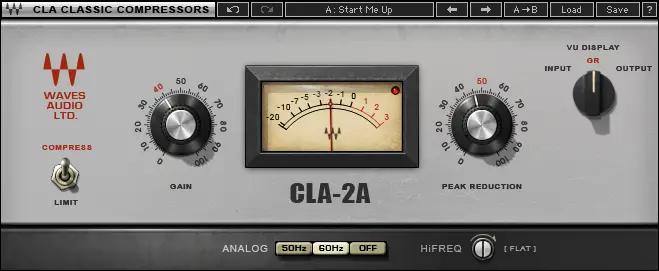
Waves CLA-2A
Waves CLA-2A is directly based on the LA-2A. It's simple to use, yet very effective.
Optical compressors are also great to use on vocals, but if you want to know more about what type of compressor to use on vocals, then check out my article below.
VCA Compressor Plugins
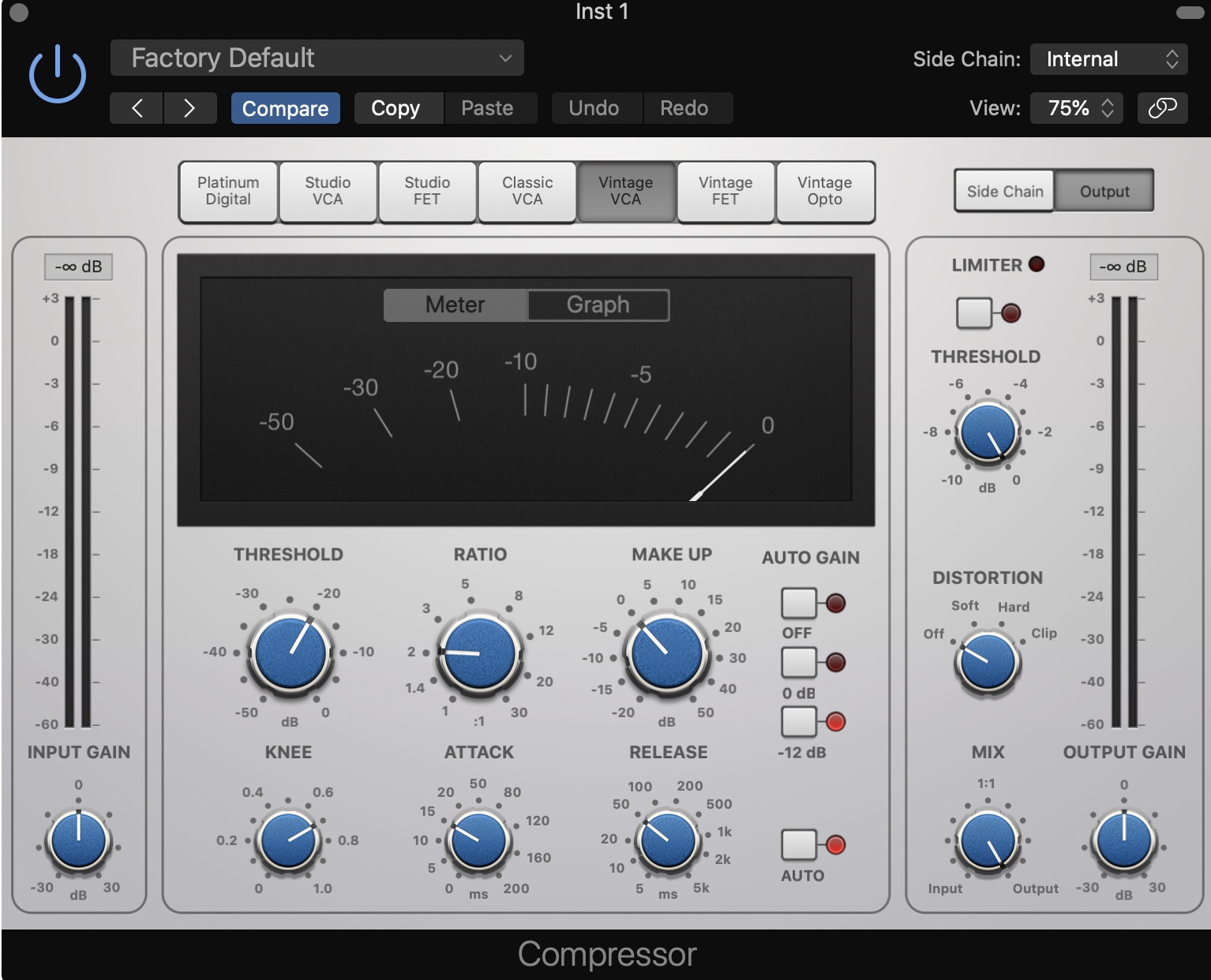
Jack of all trades
VCA is an acronym for "voltage-controlled amplifier," which is the component at the heart of the circuitry in this type of compressor.
VCA compressors are known for being good on transient-heavy material because of their fast response time.
However, many VCA compressors are also very versatile, and allow you to dial in the compression parameters of threshold, ratio, attack and release time, and makeup gain the way you want.
If you want a more transparent sound, don't set the attack too fast so it wont squash the initial transients of a sound.
VCA Compressor Pros & Cons
Good for:
Not as good for:
Some of the most famous VCA compressors are the API 2500 and the compressors built into the SSL consoles.
Lucky for us, though, we don't need a giant SSL mixing desk to get the same compression sound.
Free Plugin
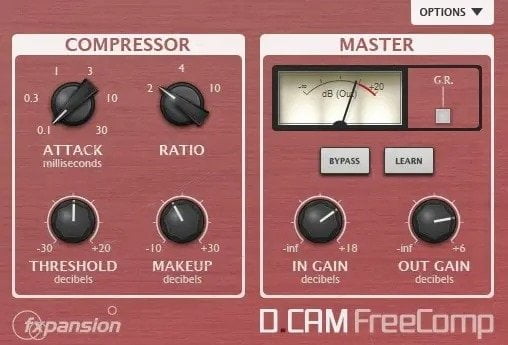
FXPansion DCAM
This is a free plugin modeled after VCA compressors.
Pro Plugin
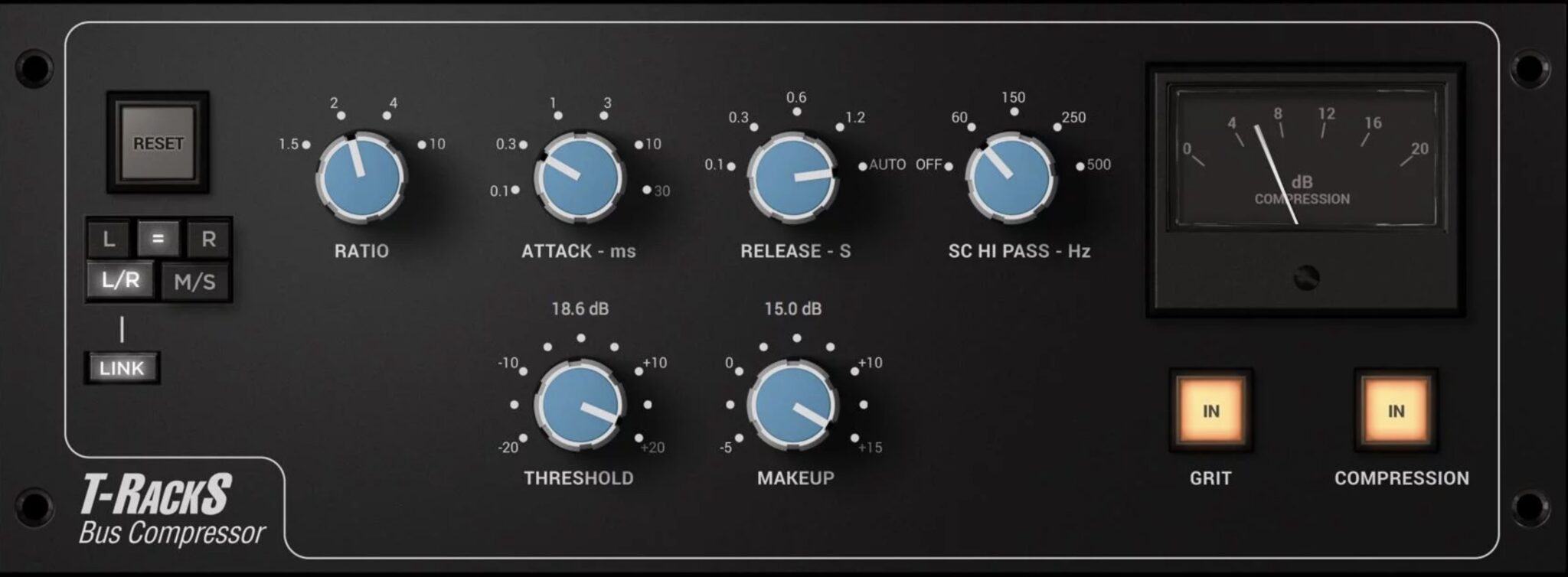
IKMultimedia Bus Compressor
This plugin is modeled after the famous SSL bus compressors.
FET Compressor Plugins
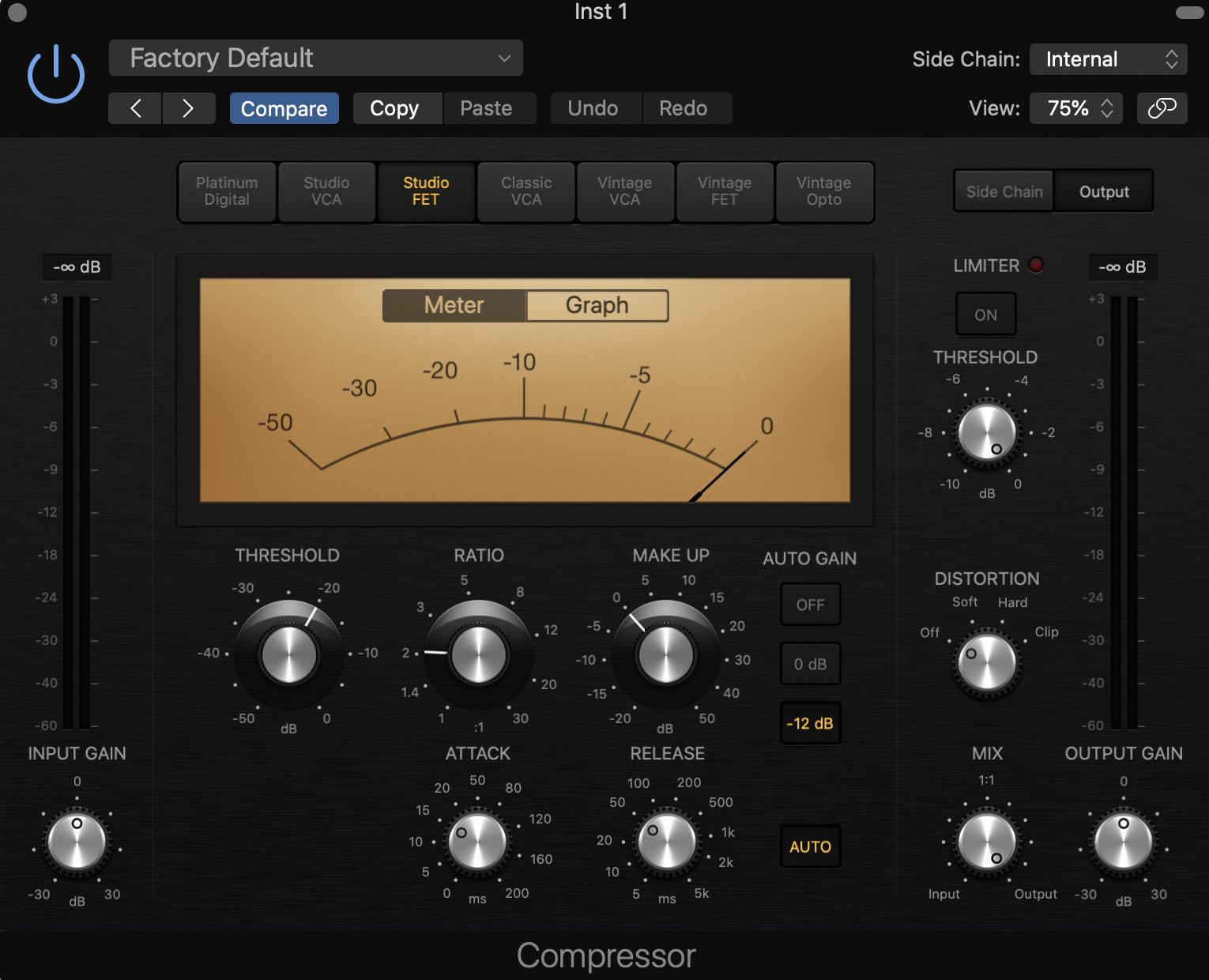
Fast & Aggressive
FET is an acronym that stands for "field-effect transistor", which means it uses FORCE FIELDS!
Just kidding.
A field-effect transistor is designed to emulate the behavior of tube circuitry.
But all you have to know is that FET compression is one of the most vital compressor sounds in music.
FET compression is known for being fast and aggressive while staying transparent enough to create large shifts in dynamics.
FET Compressor Pros & Cons
Good for:
Not as good for:
The most well-known FET compressor is the Urei 1176, which has also been emulated by a number of different companies.
Free Plugin

Analog Obsession FETISH
A great free 1176 emulation made by an independent developer.
Pro Plugin
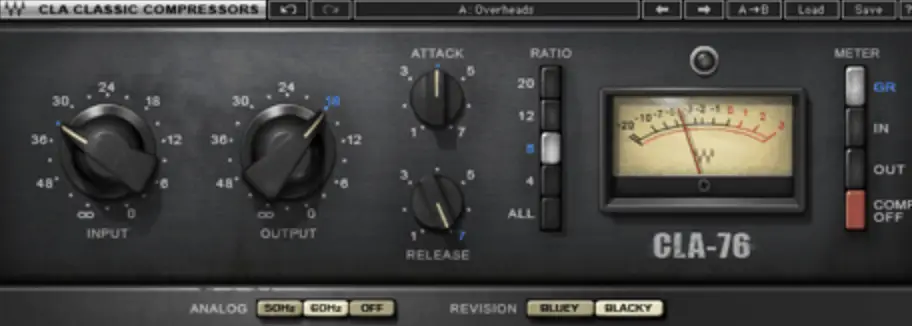
Waves CLA-76
The CLA-76 Limiting Amplifier is modeled after what is probably the most used, most known and most universally recognized compressor/limiter in the audio industry.
Tube Compressor Plugins
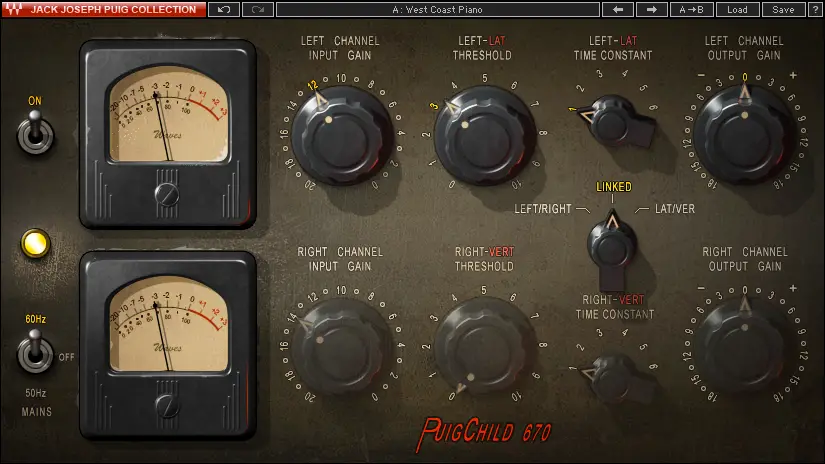
Smooth & Warm
Tube compressors are also known as "variable-mu" or "vari-mu" compressors, and they produce smooth and warm compression.
Tube compressors are great for their pleasant coloration of a sound, but they are not super-fast acting, so don't use them for transient control.
Tube compressors create compression with vacuum tubes, and they are generally large, bulky, and expensive.
Tube Compressor Pros & Cons
Good for:
Not as good for:
One of the most legendary tube compressors is the Fairchild 670 Tube Limiter.
These units are extremely rare, but you can easily get your hands on a software emulation, as again, a lot of different companies have made emulations of this compressor.
Free Plugin
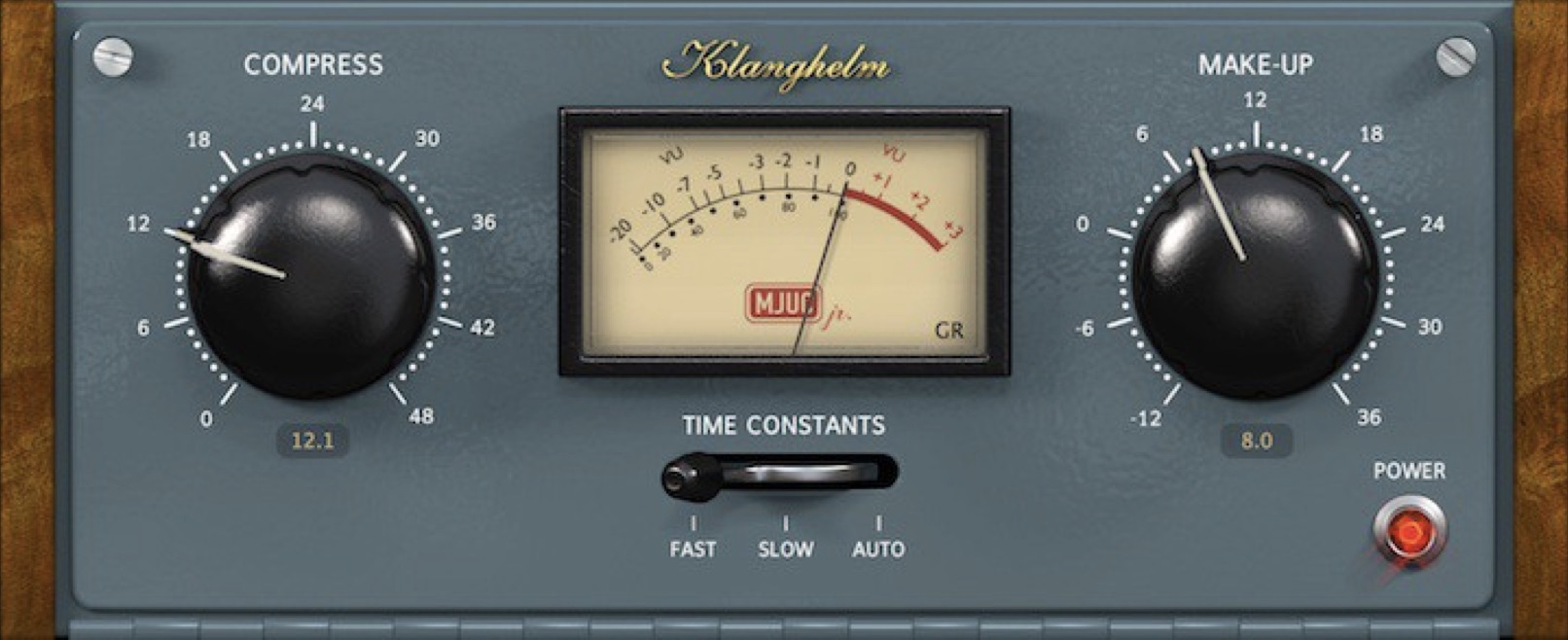
MJUC JR.
A variable-mu compressor capable of smooth leveling but also heavy pumping effects.
Pro Plugin

Waves PuigChild 670
Waves great emulation of this legendary compressor.
Digital Compressor Plugins
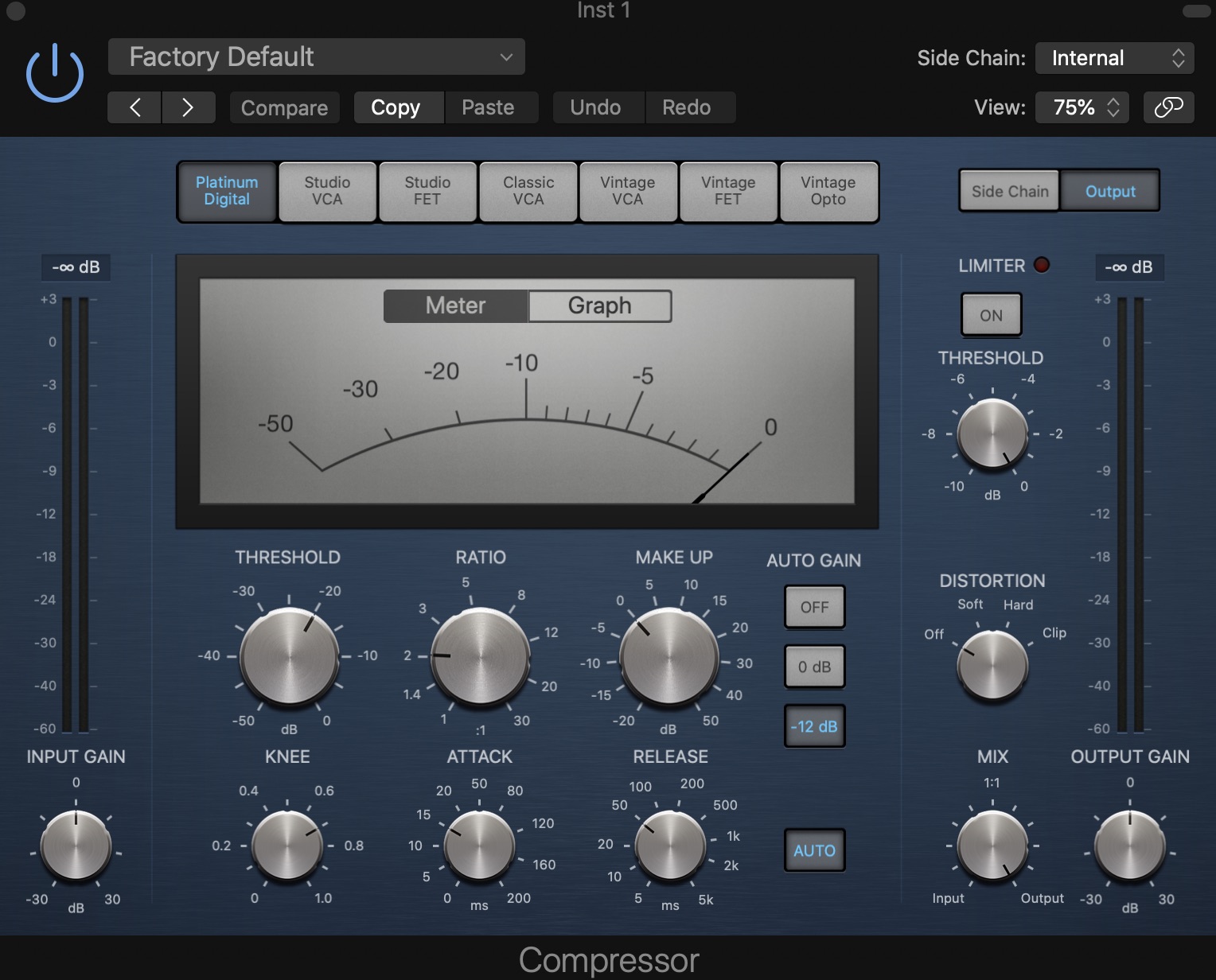
Versatile & Precise
Analog emulated compressors are popular because they contain that vintage sound we're all familiar with, but that doesn't mean there isn't a place for digital compressors that don't emulate any specific piece of analog gear.
Analog gear had a lot of limitations and imperfections that digital compressors aren't encumbered by.
Thus, digital compressors are excellent when you're going for hyper-transparent compression that doesn't change the original color of the sound you're compressing.
Digital Compressor Pros & Cons
Good for:
Not as good for:
There are a tone of great digital compressors out there, and your DAW probably has one built in. If not though, here are a couple other great ones.
Free Plugin
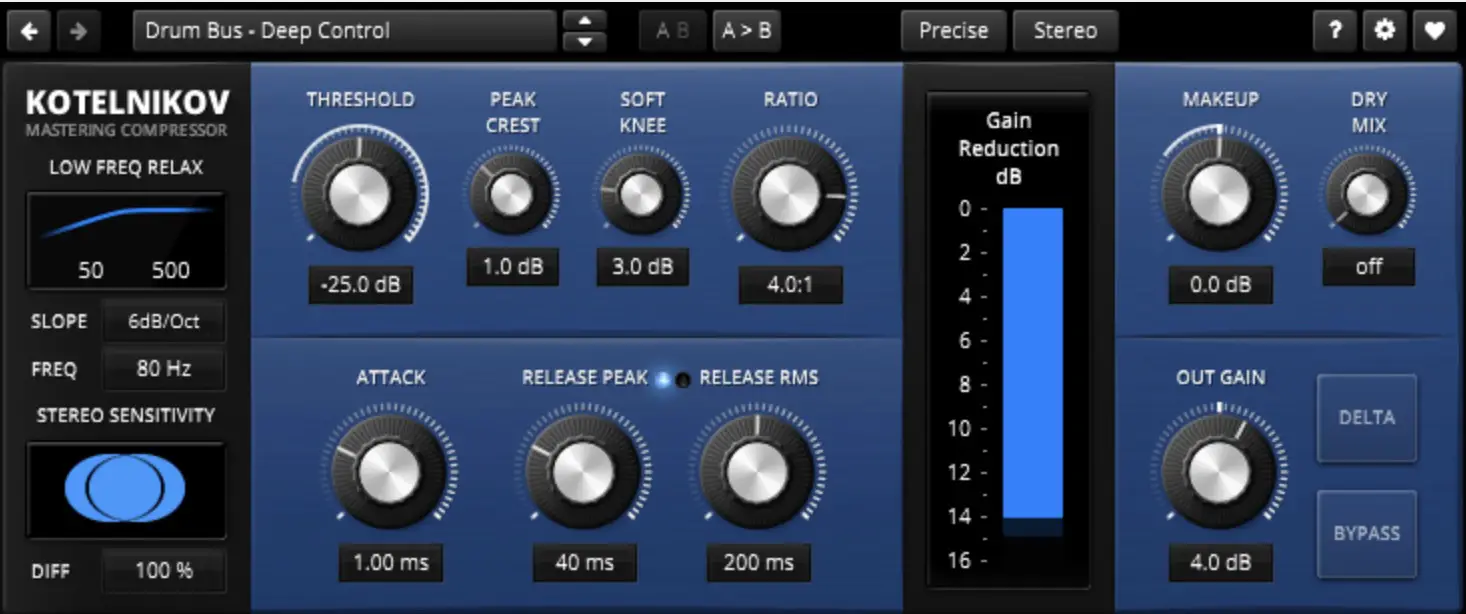
TDR Kotelnikov
A wideband dynamics processor combining high fidelity dynamic range control with deep musical flexibility.
Pro Plugin
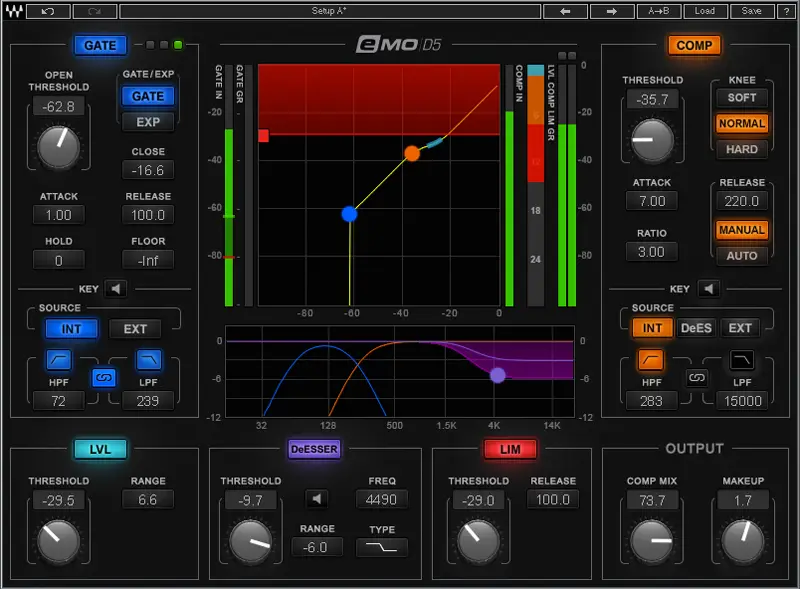
Waves eMo D5
Excellent precision and it also includes a noise gate, DeESSER, Limiter, and more
Multi-Band Compressor Plugins
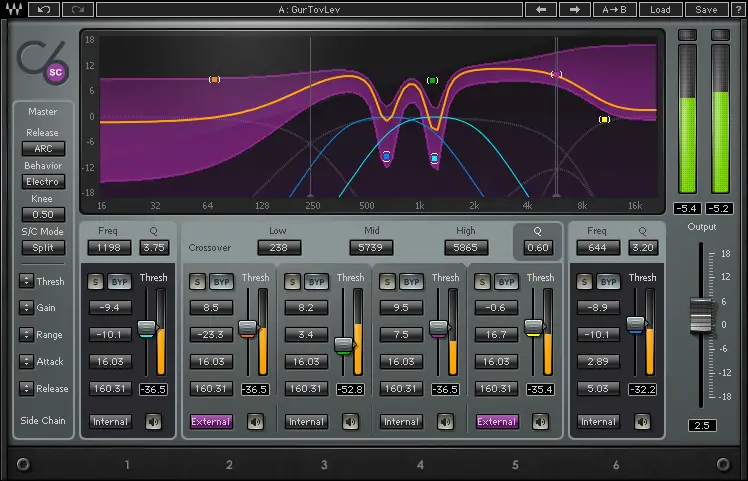
Flexible & Surgical
Multiband compressors allow you to compress specific frequency ranges of a source, rather than just compressing the entire source the same.
In other words, you can compress just the high frequencies and leave the lows alone, or vice versa.
Or, you can compress just a specific area in the mids. It's up to you!
Multiband compression is especially handy when you have a problem frequency that pops up every now and then in a track or mix.
You could EQ it out, but now that effects that one range for the entire song. With multiband compression, that problem area is ONLY cut when signal level rises above the threshold you set.
Multiband Compressor Pros & Cons
Good for:
Not as good for:
You can find two great multiband compressors below.
Free Plugin
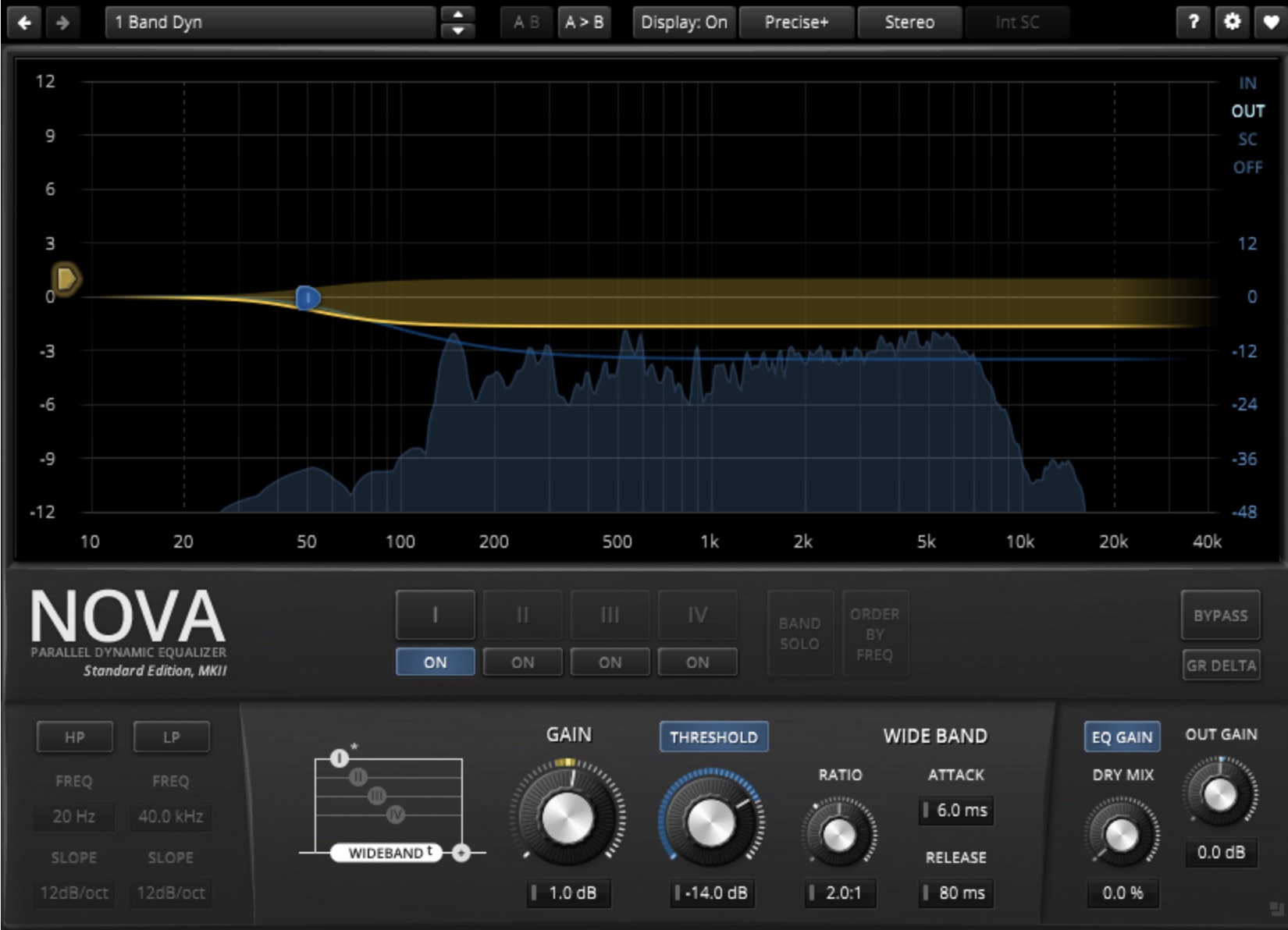
TDR Nova
NOVA is a parallel dynamic equalizer and compressor.
Pro Plugin

Waves C6 Multiband
A great multiband compressor that lets you compress different frequencies separately.
Finish More Mixes, Faster
Now you know everything you need to know about every type of compressor!
But, obviously, compression is just one part of the process when it comes to producing "radio-ready" songs.
If you want to finish more commercial-quality tracks, faster, then grab my mixing checklist below.
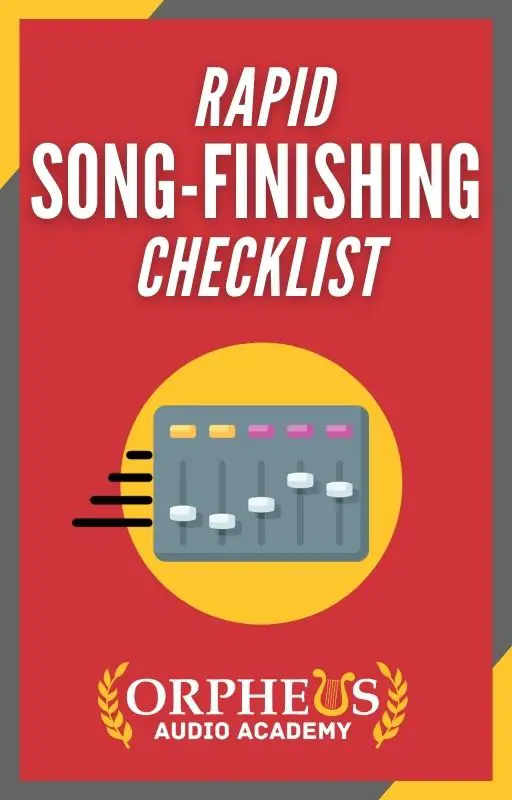
Create Better Songs, Faster
Click below to download my free song-finishing checklist to help you create radio-ready songs without taking months to complete them.
I hope you found this post on which compressor plugin should you use, helpful!
If so, feel free to share, and let me know in the comments below...
